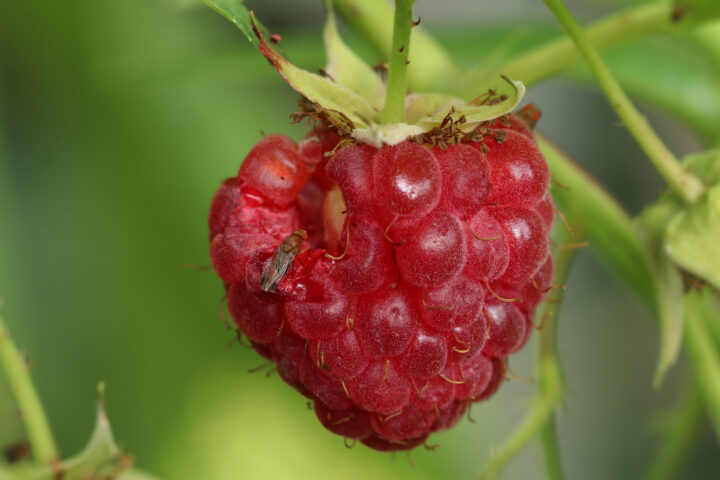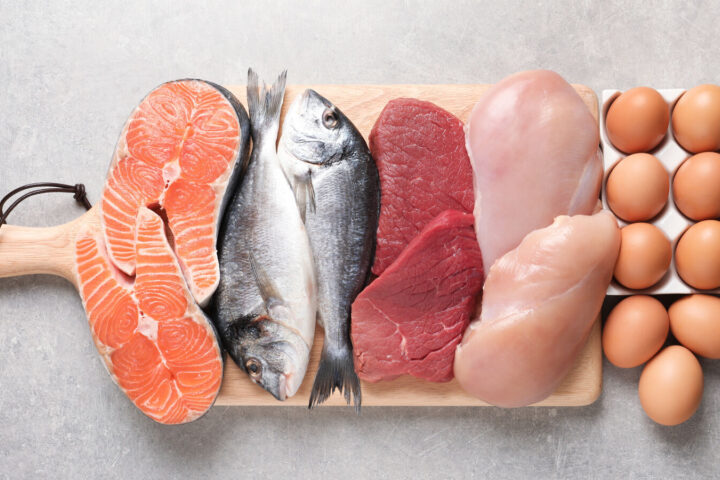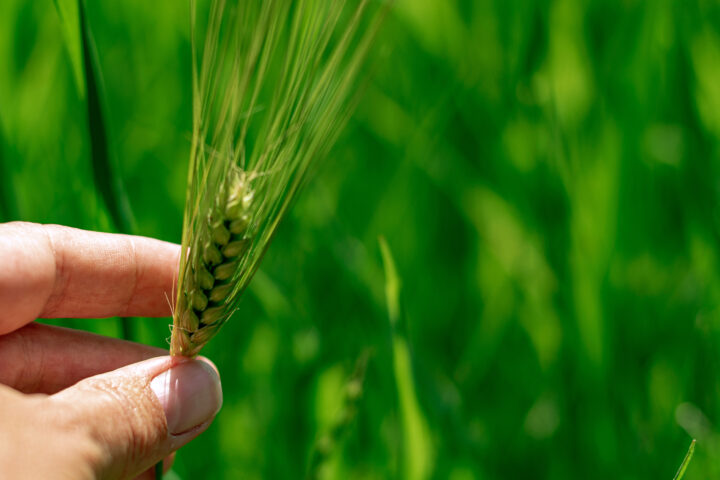
This insect poses an existential threat to German farmers
The reed glasswing cicada is spreading rapidly and threatening potatoes, sugar beets and other crops. Its bacterial pathogens cause massive crop losses. Germany is currently particularly affected, but there are also increasing signs of a growing threat in Switzerland.
Thursday, June 12, 2025
The reed-crested glass-winged cicada is spreading at an alarming rate in German growing areas. The insect is increasingly threatening potatoes, sugar beet and other vegetable crops. As reported in the German agricultural newspaper ‘Agrarzeitung’, the situation has worsened in recent weeks. Agricultural associations and experts are now sounding the alarm: there is a risk of massive losses in yield and quality – and so far there is a lack of effective strategies for dealing with the situation. ‘We urgently need solutions to keep infested crops, such as potatoes, in production. Nothing less than food security and the loss of regional cycles are at stake,’ warns Olaf Feuerborn, chairman of the Union of the German Potato Industry (UNIKA).
Joachim Rukwied, president of the German Farmers’ Association, takes a similar view.
In an interview with Welt am Sonntag, he warns about the pest: 'The leafhopper is a real threat to our agriculture and to the security of supply with local food. If we don’t get it under control, there will be a shortage of domestic produce – followed by rising prices.'
The cicada can carry two dangerous pathogens: the Stolbur pathogen and a proteobacterium. These can cause massive losses in yield, quality and storage – up to and including total crop failure in the case of potatoes. The German federal states of Baden-Württemberg, Bavaria and Rhineland-Palatinate are particularly affected. In the case of sugar beet alone, the affected area rose from 40,000 hectares in 2023 to at least 75,000 hectares last year – that's around 20 per cent of Germany's total beet-growing area.
Various emergency approvals issued
As reported by ‘20 Minuten’, the situation has become so serious that the German Federal Office for Food Safety has had to issue several emergency approvals for insecticides. Due to the insect, up to 70 percent of the potato harvest was threatened on various farms. A similar situation is unfolding in Austria, where several plant protection products have also been granted emergency authorisation at short notice. The agricultural associations are also calling for increased research and consistent monitoring to better control the spread of the cicada.
The issue has now reached the political arena. However, there is disagreement on how to solve it. Companies like Bayer and BASF have long developed effective insecticides that are already in use in countries such as Japan, the USA, Canada, and Brazil. In Germany, however, they are only approved in exceptional cases. While farmers criticize this restraint as political negligence, environmental groups insist on maintaining the bans. The question arises: is the fight against the glassy-winged sharpshooter failing because of dogma?
However, in addition to immediate measures, long-term solutions are also needed to combat the cicada. Feuerborn emphasises: ‘A reduction to agronomic or breeding measures is not enough to counter the existential threat to arable farms. We need a strategically coordinated package of measures, even in areas where the cicada does not yet occur.’ The report in Welt am Sonntag puts it succinctly: 'What helps against the leafhopper is not dogma, but technological progress in all its breadth.'
Experts such as Guendel Gonzalez, managing director of Bayer’s German Crop Science division, also criticize the fact that emergency authorizations must be reapplied for every year, offering no planning security – neither for farmers nor for the industry. She calls for a science-based, predictable approval process for new crop protection agents: 'That’s where Europe falls short.'
Switzerland also affected
The reed glass-winged cicada is not only a problem in Germany. The pest is also spreading in Switzerland and is causing significant quality problems, particularly in potato cultivation. Since 2017, there have been reports in western Switzerland of potatoes being threatened by the cicada, and in 2023, the proteobacterium Candidatus Arsenophonus phytopathogenicus was detected for the first time.
‘For the past two years, we have been experiencing more and more quality problems with potatoes, especially with processing potatoes for crisps or French fries,’ says Stefan Vogel, an agronomist and potato researcher at the School of Agricultural, Forest and Food Sciences BFH-HAFL, in a report by ‘SRF’. In Switzerland, yield losses of up to 30 percent are expected.
A current study by the Bern University of Applied Sciences is investigating how the damage to sugar beet can be reduced by crop rotation. Initial results show that the cultivation of SBR-insensitive sugar beet (Syndrome Basses Richesses; Syndrome of low sugar content) and the avoidance of autumn crops such as winter wheat has positive effects. Nevertheless, the challenge remains considerable.
According to Zürcher Bauer, monitoring by the beet advisory service has now detected new infestation areas in German-speaking Switzerland, including the Zurich Weinland region. Researchers therefore recommend strictly implementing crop rotations that interrupt the pest’s life cycle: after sugar beet, a summer crop should follow rather than winter grain. This deprives the larvae of food, causing them to die. A consistent adaptation of crop rotation is, according to Zürcher Bauer, essential to slow further spread.
The effects on the baking quality of potatoes are particularly problematic: in 152 samples tested, 74 per cent tested positive for the proteobacterium. In 21 per cent of the samples, the baking test was insufficient, with different varieties being susceptible to varying degrees. As Vogel explains, this results in an undesirable brown colouring when the potatoes are fried.
Innovative approaches are needed
In a commentary in the agricultural newspaper, German journalist René Schaal sums up the problem: ‘Climate change and globalisation are casting their shadows before them: more and more invasive pests are spreading across German fields.’ The reed-winged glass-winged cicada is not an isolated case. The challenge: effective control is hardly possible.
Increasing regulation and little room for innovation are to blame. ‘Due to ever stricter regulation, the chemical cudgel is hardly available anymore. The number of approved insecticides is gradually decreasing, biological alternatives are still in their infancy, and resistance breeding cannot react quickly enough to the constantly changing threat situation,’ Schaal continues.
The consequence: without fast and sustainable solutions, the cicada will not remain the only threat to agriculture. Farmers need stable framework conditions, research, practical innovative approaches and international cooperation to arm themselves against invasive pests. Schaal mentions specific approaches such as the promotion of natural enemies or genetically modified plants.
One thing is certain: the fight against the reed glass-winged cicada is a race against time that can only be won with the help of effective pesticides. Politicians are now called upon to act quickly. Only in this way can the damage to agriculture be kept to a minimum.
Invasive pests on the advance
Invasive pests pose a growing threat to Swiss agriculture and biodiversity. Global trade, climate change and tourism are bringing more and more alien species into Switzerland, where they cause considerable damage to cultivated and wild plants.
Examples include the Japanese beetle, which is spreading rapidly and endangering native crops, and the Asian hornet, which poses a serious threat to honeybees. Other invasive pests, such as the chestnut gall wasp, the spotted wing drosophila and the Asian longhorned beetle, are a growing concern for farmers and conservationists.
Protecting plants from these threats remains one of the greatest challenges of our time.Effective pesticides, practical control strategies and consistent monitoring are essential to contain the spread of these pests. Or as Welt am Sonntag puts it: Only those who free themselves from ideological prohibitions and embrace technological progress can win the race against invasive pests.
Sources
Kindly note:
We, a non-native editorial team value clear and faultless communication. At times we have to prioritize speed over perfection, utilizing tools, that are still learning.
We are deepL sorry for any observed stylistic or spelling errors.
Related articles

Invasive pests travel with us
Invasive pests and plant diseases are among the greatest challenges for biodiversity and agriculture. They often enter Switzerland via travel and imported goods and cause great damage to cultivated and wild plants. Since 2020, the import of plants from non-EU countries is prohibited. However, introduced pests are a worldwide problem.

Pests increasingly threaten fruit, berry and grape harvests
Fruit, berry and wine growing is increasingly threatened by pests such as the Japanese beetle, the spotted wing drosophila and the Mediterranean fruit fly. Producers are sounding the alarm – but there is a lack of pesticides that can put an end to the pests.

Because plants need protection from pests and diseases
The health of our crops cannot be taken for granted. On the contrary: in our mobile world, pests and plant diseases are spreading like wildfire. Climate change acts as an accelerant. When pests migrate and new plant diseases establish themselves in our latitudes, they can become a threat to native species. The International Plant Health Day on 12 May is a reminder of this. And the day shows: to ensure plant health in the future, research and innovation are needed above all.

Why Strict GMO Regulation Stifles Innovation
New breeding techniques such as CRISPR-Cas are considered key to developing resilient crops, stable yields and reducing the need for plant protection products. ETH professor Bruno Studer warns that overregulating these technologies strengthens precisely those large agricultural corporations that critics seek to curb, while excluding smaller breeders and start-ups from the market.

A Superfood with Benefits and Challenges
Sweet lupin is Biovision’s “Superfood of the Year 2026.” It delivers high protein content, improves soils and supports biodiversity. Yet a closer look at agricultural practice shows that without breeding, crop protection and innovation, even this superfood remains a challenging crop.

Sales bans due to PFAS: Should we be worried?
After spectacular sales bans on fish and meat due to PFAS contamination, consumers are asking themselves: How dangerous are these substances really – and what can still be placed in the shopping basket without concern?

How German Experts View New Breeding Techniques
In hardly any other country is the idyllic image of organic farming cultivated in the public sphere as carefully as in Germany. Naturalness and rural authenticity are powerful mental refuges for many Germans. Against this backdrop, it is hardly surprising that resistance to new breeding techniques is strong – and that ignorance about the realities of organic farming sometimes appears almost deliberate.

